Prithviraj Kapoor’s Biography
![Prithviraj Kapoor’s Biography]()
Prithviraj Kapoor was an Indian actor who is widely regarded as one of the fathers of Hindi films. He was a founding member of IPTA and started the Prithvi Theatre in 1944 as a traveling theatre company based in Bombay. He was the patriarch of the Hindi cinema family four generations of which have played active roles in the Hindi film business beginning with him with the youngest generation still active in Bollywood.
His father Basheshwar Nath Kapoor also appeared briefly in his film Awara. For his services to Indian film the Government of India awarded him the Padma Bhushan in 1969 and the Dadasaheb Phalke Award in 1971.
Book a Personalised message from your favourite celebrity. Click here to know more.
Prithviraj Kapoor’s Age
Prithviraj Kapoor was aged 65 years old at the time of his death. Prithviraj Kapoor was born in Samundri Punjab British India on November 3 1906. His zodiac sign is Scorpio.
Prithviraj Kapoor's Childhood
Prithviraj Kapoor spent much of his childhood in Lyallpur Punjab where his grandparents and extended relatives lived. Later his father was sent to Peshawar North West Frontier Province and the family relocated there after a few years while keeping their house and belongings in Lyallpur
Prithviraj Kapoor's Education
Prithviraj Kapoor first studied Khalsa College in Lyallpur and then Edwardes College in Peshawar.
Prithviraj Kapoor's Family
![Prithviraj Kapoor's Family]()
Prithviraj was born into a Punjabi Hindu Khatri Kapoor gotra family. His father Basheshwarnath Kapoor was an Indian Imperial Police officer stationed in Peshawar. Keshavmal Kapoor his grandpa was a Tehsildar at Samundri near Lyallpur. Prithviraj Kapoor was the eldest of eight siblings five of them were actors (including Prithviraj and Trilok Kapoor). Surinder Kapoor the father of actors and producers Anil Kapoor Boney Kapoor and Sanjay Kapoor was Prithviraj Kapoor's cousin.
Prithviraj Kapoor's Wife
![Prithviraj Kapoor's Wife]()
Kapoor was 17 years old when he married Ramsarni Mehra a 15-year-old girl from his own community and upbringing in a match arranged by their parents in the traditional Indian manner. Their marriage was pleasant and traditional and it lasted their entire lives.
In actuality the wedding had taken place a few years previously and the gauna ceremony (farewell) was held when Ramsarni turned 15 and became old enough to leave her parents and live with her husband and in-laws. Jugal Kishore Mehra Ramsarni's brother would subsequently work in films.
The couple's eldest child Raj Kapoor was born the following year on 14 December 1924 in Peshawar North West Frontier Province making Prithviraj a father at the age of 18. The couple had three children by the time Prithviraj went to Bombay City Bombay Presidency in 1927. Ramsarni joined Prithviraj in Bombay in 1930.
The following year while she was pregnant for the fourth time two of their kids died within a week of each other. Devinder (nicknamed Devi) died of double pneumonia while Ravinder (nicknamed Binder or Bindie) died of poisoning after accidentally swallowing rat-poison pills strewn in the garden.
The couple had three further children: sons Shamsher Raj (Shammi) and Balbir Raj (Shashi) both of whom became well-known actors and directors in their own right and daughter Urmila Sial. Prithviraj and Ramsarni both died of cancer around a fortnight apart.
Prithviraj Kapoor's Struggles
Kapoor began his performing career in the Lyallpur and Peshawar theatres. With the help of an aunt he relocated to Bombay City Bombay Presidency in 1928. He joined the Imperial Films Company and began acting in tiny roles in films. He also joined the Grant Anderson Theater Company an English theatre company that spent a year in Bombay.
Prithviraj Kapoor's Movies
Alam Ara
![]()
Ardeshir Irani directed and produced Alam Ara a 1931 Indian Hindustani-language historical fantasy film. It revolves around a king and his two childless wives Navbahaar and Dilbahaar; soon a fakir (Muhammad Wazir Khan) informs the king that the former wife will give birth to a boy later named Qamar (Master Vithal) but the child will die after his 18th birthday if Navbahaar cannot find the necklace he requests.
Meanwhile the king discovers that Dilbahaar has feelings for Senapati Adil (Prithviraj Kapoor) prompting the king to imprison him and expel his pregnant wife who subsequently gives birth to Alam Ara (Zubeida). When he saw the 1929 American part-talkie Show Boat Irani was inspired to create Alam Ara.
The plot was adapted from the same-named play by Bombay-based dramatist Joseph David. Made on an Rs40 000 budget. Alam Ara was released on March 14 1931 and did well at the box office. The performance and songs received the most attention from critics with some criticising the sound recording.
Sikandar
![]()
Sikandar often known as Sikander is a 1941 epic Bollywood film directed by Sohrab Modi that stars Prithviraj Kapoor as Alexander the Great. Prithviraj was well-known for his portrayal of Alexander the Great or Sikandar in this film. The film is set in 326 BC after Sikandar conquered Persia and the Kabul Valley and is on his way to the Indian boundaries.
Sohrab Modi directed the film which also starred Vanamala. According to legend after defeating Porus and imprisoning him Sikander asked Porus how he wanted to be treated. Porus replied: the same way a king is treated by another king. Sikander was satisfied with his response and released him.
Anand Math
![]()
Anand Math is a 1952 Indian Hindi-language historical drama film directed by Hemen Gupta based on Bankim Chandra Chatterjee's 1882 Bengali novel Anandamath. The novel and film are set during the Sannyasi Rebellion which occurred in Bengal in the late 18th century.
The Vande Mataram song written by Bankim Chandra Chatterjee composed by Hemant Kumar and sung by Lata Mangeshkar was voted second in the World's Top Ten songs of all time in a BBC World Service poll conducted in 2003 across 165 nations. In the lead roles are Prithviraj Kapoor Bharat Bhushan Pradeep Kumar Geeta Bali and Ajit.
Pradeep Kumar and Hemant Kumar the film's music director both made their debuts in Hindi cinema. Hemant had previously worked in Bengali cinema before moving to Mumbai to pursue a career in Hindi cinema. With this film Hemant Kumar began working as a composer for S. Mukherjee's Filmistan Studios.
Mughal-e-Azam
K. Asif produced and directed Mughal-e-Azam a 1960 Indian epic historical drama film. It follows the love affair between Mughal Prince Salim (who went on to become Emperor Jahangir) and Anarkali a court dancer and stars Prithviraj Kapoor Dilip Kumar Madhubala and Durga Khote. Emperor Akbar Salim's father disapproves of the relationship resulting in a fight between father and son.
The development of Mughal-e-Azam began in 1944 when Asif read a 1922 play called Anarkali by the playwright Imtiaz Ali Taj which is set in the reign of Emperor Akbar (1556–1605). Delays and financial instability plagued production.
Mughal-e-Azam had the broadest release of any Indian film up to that point and fans frequently waited all day for tickets. It broke box office records in India and became the biggest-grossing Indian film of all time a title it held for 15 years; adjusted for inflation it remains the top grossing Indian film of all time.
Pyaar Kiya To Darna Kya
![]()
Pyaar Kiya To Darna Kya is a 1963 Indian Hindi film directed by B.S. Ranga in black and white. Shammi Kapoor B. Saroja Devi Pran Om Prakash Helen Agha and Prithviraj Kapoor appeared in the film. Ravi Shankar composed the music for the film. Rajesh Shammi Kapoor is the wealthy son of Kuver Saheb (Prithviraj Kapoor). Rajesh falls in love with Savita (Saroja Devi) the daughter of Ramdas (Nazir Hussain) a teacher who sacked and humiliated Rajesh when he was younger.
Savita persuades Rajesh to study harder in college rather than being a slacker and he ranks first in the entire college and receives a gold medal. Kuvar Saheb is dissatisfied with his son's romantic relationship and refuses to recognise their love.
But Rajesh marries Savita without his father's permission and returns home. M. Rafi's voice an all-time great singer adds to this superb film.
Zindagi
![]()
Zindagi is a 1964 Indian Hindi-language film directed by Ramanand Sagar and produced by S. S. Vasan Gemini Pictures. Rajendra Kumar Vyjayanthimala Raaj Kumar Prithviraj Kapoor Mehmood Jayant Jeevan Leela Chitnis and Helen feature in the film. Shankar Jaikishan composed the soundtrack for the film.
The film was adapted in Tamil as Vaazhkai Padagu (1965) and Telugu as Aada Brathuku (1966). Beena is a stage actress who lives in poverty with her widowed mother. She gets molested by Banke and two other men on her way home one day but Rajan rushes to her rescue. He drives her home and the two of them quickly fall in love.
Pardesi
![]()
Khwaja Ahmad Abbas and Vasili Pronin co-directed the 1957 film Pardesi. It was made in two versions Hindi and Russian and is based on Afanasy Nikitin's travelogues A Journey Beyond the Three Seas which is today recognized as a Russian literary masterpiece.
Pardesi is an Indo-Soviet co-production between the state-owned Mosfilm Studio and Khwaja Ahmad Abbas's production house Naya Sansar International made during the peak of Indo-Russian friendship. Anil Biswas composed the music for the film which had famous classics such as Rasiya Re Man Basiya Re by Meena Kapoor and Na Dir Dim by Lata Mangeshkar which Padmini danced to.
The film was shot in SovColor although no colour prints of the Hindi version are known to exist in India. The Hindi film is only available in black and white. The plot revolves around Afanasy Nikitin (Oleg Strizhenov) a 15th-century Russian businessman who visits India (1466-1472) and falls in love with an Indian girl named Champa (Nargis).
Daku Mangal Singh
![]()
Dara Singh Mumtaz and Prithviraj Kapoor star in the Bollywood action film Daku Mangal Singh directed by Chand. Pinky Films produced the film which was released in 1966. Mangal Singh terrorizes the community of Dholakpur but he is apprehended by Bheem. The plot centers around Bheem and Mangal Singh's cat-and-mouse game.
Teen Bahuraniyan
![]()
S. S. Vasan and S. S. Balan directed Teen Bahuraniyan a 1968 Indian Hindi-language comedy film. It is a remake of the Tamil film Bama Vijayam from 1967. Sowcar Janaki Kanchana and Jayanthi reprise their roles from the original film as the female leads.
Dinanath a retired schoolteacher and widower lives in the middle class with his three sons: Shankar his wife Parvati and five children; Ram his wife Sita and two children; and Kanhaiya and his wife Radha.
Shankar is a music professor Ram is a court clerk and Kanhaiya is a salesman. The three give their monthly wages to their father who governs the home strictly often inflicting school-like' discipline on adults.
Kal Aaj Aur Kal
Kal Aaj Aur Kal is a 1971 Indian Hindi-language film directed by Raj Kapoor's son Randhir Kapoor. The appearance of three generations of the famed Kapoor family is the film's big attraction. Prithviraj Kapoor Raj Kapoor Randhir Kapoor (in his acting debut) and his real-life wife-to-be Babita feature in the film. It was also Shankar Jaikishan's final score for a Raj Kapoor film.
This film came after the disaster that was Mera Naam Joker Raj Kapoor's ideal project. Although it was only a middling hit at the box office it more than made up for his loss. The film was one of Prithviraj Kapoor's final films as he died the year after its premiere.
Prithviraj Kapoor's Career Timeline
| Year |
Prithviraj Kapoor Movies |
Prithviraj Kapoor Character |
| 2017 |
Chhatrapati Shivaji |
Raja Jaisingh |
| 1980 |
Judaai |
(as Pridhviraj) |
| 1973 |
Naya Nasha |
Rana (as Prithviraj) |
| 1973 |
Mele Mitran De |
NA |
| 1972 |
Naag Panchami |
Maharaj Chandradhar |
| 1972 |
Baankelal |
NA |
| 1971 |
Sakshatkara |
Bhoopalayya |
| 1971 |
Kal Aaj Aur Kal |
Diwan Bahadur Kapoor |
| 1971 |
Padosi |
NA |
| 1971 |
Sher E Watan |
Baadshah Hanibaal |
| 1970 |
Gunah Aur Kanoon |
Jamnadas |
| 1970 |
Ek Nannhi Munni Ladki Thi |
NA |
| 1970 |
Heer Raanjha |
The King |
| 1970 |
Nanak Dukhiya Sub Sansar |
Giani |
| 1969 |
Sati Sulochana |
Param Shivbhakt Lankeshwar Ravan |
| 1969 |
Bombay by Nite |
Lalaji |
| 1969 |
Insaf Ka Mandir |
Judge |
| 1969 |
Nanak Naam Jahaz Hai |
Gurmukh Singh |
| 1969 |
Nai Zindagi |
NA |
| 1968 |
Teen Bahuraniyan |
Dinanath (as Prithviraj) |
| 1968 |
Balram Shri Krishna |
NA |
| 1968 |
Shamsher |
NA |
| 1967 |
Rustom Sohrab |
Rustom Zabuli (as Prithviraj) |
| 1967 |
Shamsheer |
NA |
| 1966 |
Insaaf |
Judge (as Prithviraj) |
| 1966 |
Love and Murder |
Inspector |
| 1966 |
Lal Bangla |
Police Sub-Inspector |
| 1966 |
Daku Mangal Singh |
NA |
| 1966 |
Yeh Raat Phir Na Aaygi |
Professor (as Prithviraj) |
| 1966 |
Sher E Afghan |
NA |
| 1966 |
Shankar Khan |
Safdar Khan |
| 1965 |
Shri Ram Bharat Milap |
Raja Dashrath |
| 1965 |
Jahan Sati Wahan Bhagwan |
Maharaja Karamdham (as Prithviraj) |
| 1965 |
Lootera |
Shah Zaman (as Prithvi Raj Kapoor) |
| 1965 |
Sikandar E Azam |
Porus (as Prithviraj) |
| 1965 |
Khakaan |
NA |
| 1965 |
Aasmaan Mahal |
Asmaan |
| 1965 |
Janwar |
Mr. Srivastava (as Prithviraj) |
| 1964 |
Gazal |
Nawab Bakar Ali Khan |
| 1964 |
Jahan Ara |
Shah Jahan |
| 1964 |
Zindagi |
Rai Bahadur Gangasaran |
| 1964 |
Rajkumar |
Maharaja |
| 1963 |
Harishchandra Taramati |
King Harishchandra |
| 1963 |
Pyaar Kiya To Darna Kya |
Kunwar Saheb |
| 1961 |
Senapati |
Senapati |
| 1960 |
Mughal-E-Azam |
Emperor Akbar (as Prithviraj) |
| 1958 |
Lajwanti |
(as Prithviraj) |
| 1958 |
Paisa |
NA |
| 1957 |
Pardesi |
Mehmud Gawan |
| 1957 |
Ehsan |
NA |
| 1957 |
Aag Ka Dariya |
NA |
| 1957 |
Insaan |
NA |
| 1952 |
Anand Math |
Satyananda (as Prithviraj) |
| 1951 |
Awaara |
Justice Raghunath (as Prithviraj) |
| 1950 |
Dahej |
Thakur (Chanda's dad) |
| 1948 |
Azadi Ki Raah Par |
(as Prithviraj) |
| 1948 |
Prithviraj Samyogita |
NA |
| 1948 |
Valmiki |
NA |
| 1948 |
Shri Krishn Arjun Yuddha |
NA |
| 1945 |
Devdasi |
(as Prithviraj) |
| 1945 |
Vikramaditya |
Vikramaditya (as Prithviraj) |
| 1945 |
Phool |
NA |
| 1944 |
Maharathi Karna |
Karna |
| 1944 |
Vish Kanya |
NA |
| 1944 |
Bhalai |
NA |
| 1944 |
Ishara |
NA |
| 1943 |
Aankh Ki Sharm |
(as Prithviraj) |
| 1943 |
Gauri |
(as Prithviraj) |
| 1943 |
Ek Raat |
NA |
| 1942 |
Chauranghee |
(as Prithviraj Kapur) |
| 1942 |
Ujala |
NA |
| 1941 |
Sikandar |
Alexander the Great |
| 1941 |
The Court Dancer: Raj Narkati |
Prince Chandrakriti (Hindi version) |
| 1940 |
Aaj Ka Hindustan |
(as Prithviraj) |
| 1940 |
Chingari |
(as Prithviraj) |
| 1940 |
Deepak |
NA |
| 1940 |
Dipak Mahal |
(as Prithviraj) |
| 1940 |
Sajni |
Nanda |
| 1940 |
Pagal |
Dr. Vasant |
| 1940 |
Sapera |
NA |
| 1939 |
Adhuri Kahani |
Somnath |
| 1939 |
Dharti Mata |
NA |
| 1938 |
Abhagin |
Promode (as Prithviraj) |
| 1937 |
President |
Dewan Prithviraj (as Prithraj) |
| 1937 |
Milaap |
NA |
| 1937 |
Anath Ashram |
Ranjit |
| 1937 |
Bidyapati |
King Shiva Singha |
| 1936 |
Grihadah |
Suresh (Hindi version) |
| 1936 |
Manzil |
Suresh |
| 1936 |
Inquilab |
NA |
| 1934 |
Daku Mansur |
(as Prithviraj) |
| 1934 |
Seeta |
Ram |
| 1933 |
Ramayan |
(as Prithviraj) |
| 1933 |
Rajrani Meera |
Rana Kumbh King of Chitor |
| 1932 |
Dagabaz Ashiq |
(as Prithviraj) |
| 1932 |
Blood Feud |
NA |
| 1931 |
Draupadi |
Arjuna |
| 1931 |
The Light of the World |
NA |
| 1931 |
Prince Vijay Kumar |
NA |
| 1931 |
Sher-e-Arab |
NA |
| 1931 |
Cinema Girl |
NA |
| 1931 |
Be Dhari Talwar |
NA |
Prithviraj Kapoor's Networth
Prithviraj Kapoor's net worth is reported to be between $1 million and $5 million dollars. He has amassed enormous money from his main profession as an actor.
Prithviraj Kapoor's Social Work
Prithviraj invested in Prithvi Theatres which produced renowned plays around India. The plays had a huge impact on young people inspiring them to join the Indian independence struggle and the Quit India Movement. India Post released a special two-rupee commemorative postage stamp in 1996 the Golden Jubilee year of the inception of Prithvi Theatre. It included the theatre's logo the dates 1945-1995 and a photograph of Kapoor.
Prithviraj Kapoor's Death
Both Prithviraj and his wife Ramsarni died of cancer in their old age. While Prithviraj died on May 29 1972 his wife died a fortnight later on June 14.
Prithviraj Kapoor's Awards
- In 1954 Prithviraj won Sangeet Natak Akademi Fellowship from the Sangeet Natak Akademi
- In 1956 Prithviraj won Sangeet Natak Akademi Award from the Sangeet Natak Akademi
- In 1969 Prithviraj won Padma Bhushan from the Government of India
- In 1972 Prithviraj won Dadasaheb Phalke Award (Posthumous) for the year 1971 for his immense contribution to Indian theatre and cinema
11 Interesting facts about Prithviraj Kapoor
![11 Interesting facts about Prithviraj Kapoor]()
- During the Golden Jubilee year of Prithviraj Theaters in 1996 the Government of India released a memorable Rs. 2 postal stamps. This postal stamp depicted Prithviraj Kapoor as well as the logo of his theatre with the dates 1945 to 1995.
- On May 3 2013 India Post and the Government of India released another postage stamp honoring the 100th anniversary of Indian film. This postage stamp also depicted Prithviraj Kapoor.
- Prithviraj Kapoor played Mughal Emperor Akbar in the 1960 film Mughal-e-Azam giving the most memorable performance of his career.
- In 1963 Prithviraj Kapoor played the principal role in the film Harishchandra Taramati.
- From 3 April 1952 to 2 April 1960 Prithviraj Kapoor was a Rajya Sabha Member. In 1950 he was awarded the Sangeet Natak Akademi Fellowship. In 1969 the Indian government bestowed the Padma Bhushan upon him.
- Later Prithviraj Kapoor resided in a cottage called Prithvi Jhonpra near Juhu Beach in West Bombay. Prithviraj Kapoor was posthumously given the Dadasaheb Phalke Award for 1971 in 1972. He was only the third person in India to earn this award for his remarkable contribution to Indian cinema.
- Following the death of Prithviraj Kapoor his son Shashi Kapoor purchased this bungalow which he eventually transformed into the Prithvi Theatre a tiny experimental theatre.
- Prithviraj Kapoor spoke Punjabi Hindi and Hindko fluently.
- Prithviraj Kapoor shot the song 'Jab Pyar Kiya To Darna Kya' in Mughal-e-Azam without using glycerine.
- Urmila Siyal Kapoor Prithviraj Kapoor's daughter married Charanjit Sial a coal mine owner from Nagpur at a young age. Urmila is the mother of three daughters Anuradha Sial Priti Sial and Namita Sial as well as a son Jatin Sial.
- All India Radio hosts a rare interview with Prithviraj Kapoor.
![birthday occasion]() Birthday Gifts
Birthday Gifts
![anniversary occasion]() Anniversary Gifts
Anniversary Gifts
![women]() Women
Women
![men]() Men
Men
![Couples]() Couples
Couples
![Couples]() Wedding Gifts
Wedding Gifts

 Birthday Gifts
Birthday Gifts
 Women
Women
 Men
Men
 Anniversary Gifts
Anniversary Gifts
 Wedding Gifts
Wedding Gifts
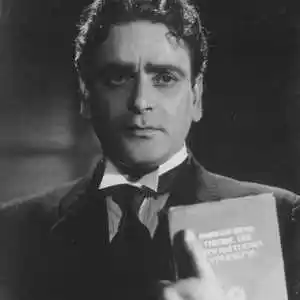
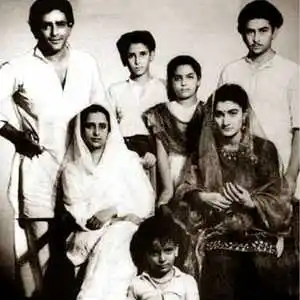
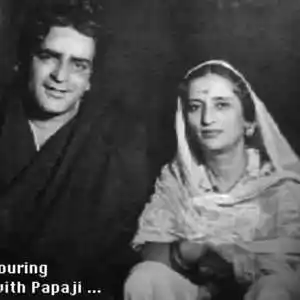
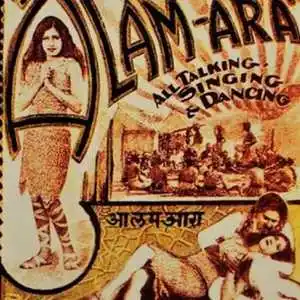
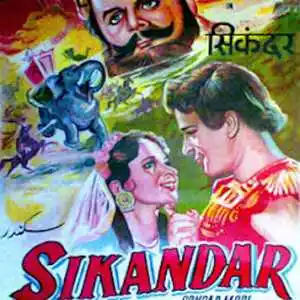
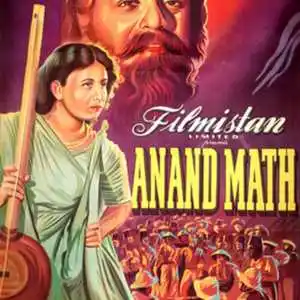
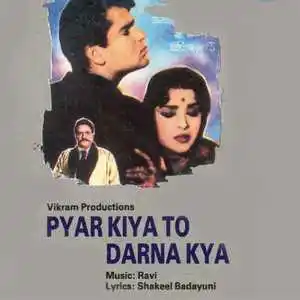
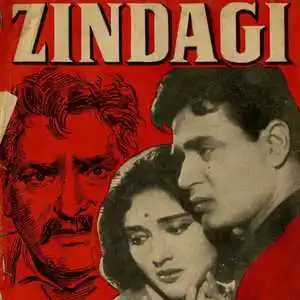
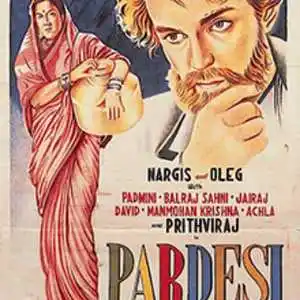
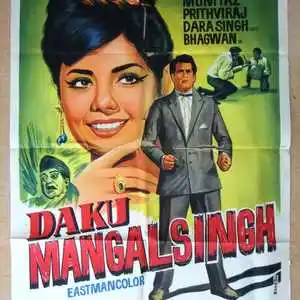
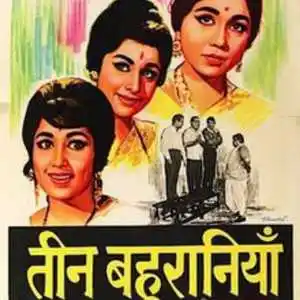
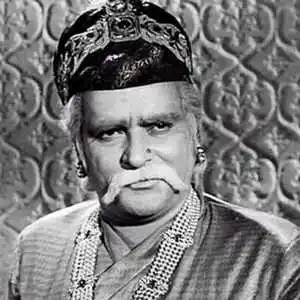
 We now support international payments
We now support international payments
